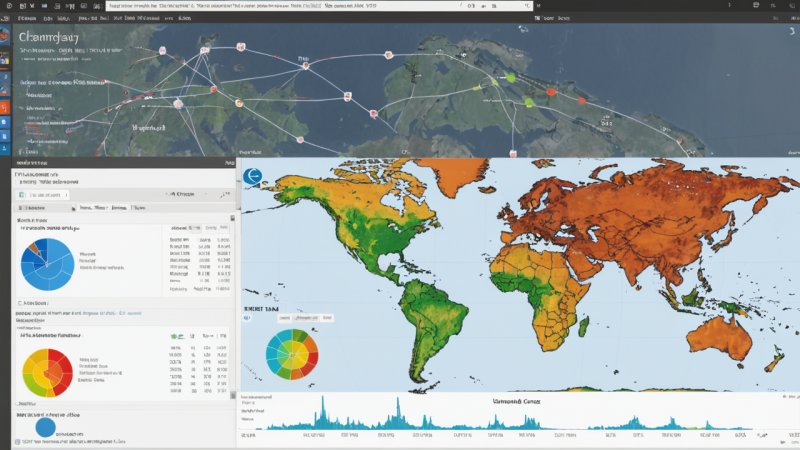Introduction
Open source software has revolutionized various fields, and climate science is no exception. By providing researchers and scientists with powerful tools that are freely accessible and modifiable, open source projects foster collaboration and innovation. In this article, we will explore the top five open source tools that are making a significant impact in climate science.
1. Climate Data Operators (CDO)
CDO is a collection of command-line tools designed for processing and analyzing climate data. It supports various file formats, including NetCDF, GRIB, and others, making it versatile for different datasets.
- Key Features: Data manipulation, statistical analysis, and graphical visualization.
- Use Case: Ideal for climate researchers needing to preprocess large datasets before analysis.
2. Panoply
Panoply is a cross-platform application designed for visualizing and analyzing scientific data. It allows users to easily create graphical representations of data stored in NetCDF and HDF formats.
- Key Features: Interactive plotting, latitude/longitude map projections, and export options.
- Use Case: Useful for scientists who need to visualize climate models or observational data quickly.
3. OpenClimateGIS
This toolset provides functionalities for managing, analyzing, and visualizing geospatial climate data. OpenClimateGIS helps bridge the gap between climate data and Geographic Information Systems (GIS).
- Key Features: Spatial analysis, data integration, and visualization tools.
- Use Case: Perfect for researchers focusing on climate impacts in specific geographic areas.
4. Climate Model Intercomparison Project (CMIP)
CMIP is an initiative that helps facilitate climate model comparisons among different research groups worldwide. The resulting datasets are often open source and widely used in climate research.
- Key Features: Standardized datasets, collaborative model testing, and community-driven.
- Use Case: Essential for comparing different climate models and understanding uncertainties.
5. GitHub for Climate Science
While not a tool in the traditional sense, GitHub has become a central platform for open source climate science projects. Researchers use GitHub to share their code, collaborate on projects, and manage version control.
- Key Features: Collaboration tools, version control, and issue tracking.
- Use Case: Beneficial for any researcher wanting to work collaboratively on climate science projects.
Conclusion
Open source tools are transforming the landscape of climate science by enabling researchers to access and manipulate data efficiently. The five tools discussed above—CDO, Panoply, OpenClimateGIS, CMIP, and GitHub—are just a few examples of how open source projects can drive innovation and collaboration in the fight against climate change. Embracing these tools can lead to more robust research, better data management, and ultimately, a deeper understanding of our planet's climate.






